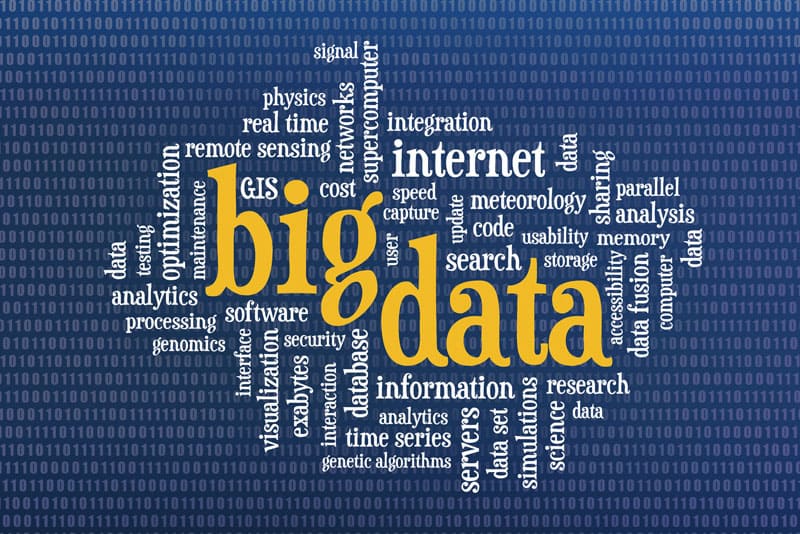
Businesses deal with several forms of data and organizing and managing large amounts of data becomes easy with data entry services. Data is a crucial element for any industry and when data is well-organized and interpreted, it helps in making informed decisions. Data is treated as an organizational asset that helps derive value and gain deep business insights.
The present business world is highly data driven. The role of data is to enable business leaders to make decisions based on facts, trends and statistical numbers. But with so much inflow of data every day, business leaders should be capable of sifting through the noise, and extract the right information so that they can make appropriate business decisions about the strategy and growth of the company.
Big data and data science are two terms that often put people in a dilemma. How are these related? Big data refers to large volumes of complex data, both structured and unstructured, that businesses generate on a daily basis. These data can be analyzed for insights that can lead to better decisions and strategic business moves. Data science is a scientific approach that applies mathematical and statistical ideas and computer tools for processing big data.
There is a huge growth of information everywhere that creates big data and data science is a challenging area due to the complexities of data, the need to combine and apply different methods and algorithms, and the use of complex programming techniques to perform intelligent analysis of large volumes of data. Data science has evolved from big data.
Key Aspects to Note: Big Data and Data Science
- Meaning:
- Big data refers to huge volumes of data that cannot be handled by traditional database programming and is characterized by:
Volume – the amount of data created every second in size and volume
Value – the value of the data it provides
Variety- the vast types of data available, and
Velocity- the speed at which the data is generated. - Data science refers to the study of all data available to arrive at meaningful and relevant information. It is all about capturing, analyzing and utilizing the data to derive valuable insights.
- Big data refers to huge volumes of data that cannot be handled by traditional database programming and is characterized by:
- Concept:
- Big data: It includes raw data generated from multiple sources to support decision making in the field of business intelligence.
- Data science: It encompasses everything related to data, from the generation of data to data cleansing, visualizing, and mining to analytics and deals with both raw data and structured data.
- Applications:
- Big data
- Travel: Travel agencies generate huge volumes of data from their customers to enhance their services and travel itineraries through various channels. Using this data, consumer preferences are studied to offer them vacation or experience options that match their interests.
- Healthcare: Hospitals and healthcare service providers store big data to analyze and perform tasks like track and optimize patient influx, track the use of equipment and medicines in the facilities, organize patient information and so on.
- Gaming: Online games generate and use large volumes of data. In a single online gaming session itself, a large amount of big data is generated from the server.
- Data science
- Digital advertisements: When you visit a website supported by advertisements, these are based on your browsing history. With data science algorithm and machine learning, every digital marketing domain can personalize the ads you see.
- Internet search: When you search for something in your browser in both the normal mode and incognito mode, the search results will be different in the two browser windows. This is because of a filter bubble i.e. when you are logged into your accounts, based on the browsing history of that account, the search results are filtered.
- Recommender system: Websites are developing and using many algorithms to make powerful recommender systems based on the user’s preferences.
- Big data
- Approach:
- Big data: The big data approach is to develop business agility, gain competitiveness, leverage data for business, achieve sustainability, understand markets, and get new customers.
- Data science approach uses a theoretical approach to extract more information through extensive use of mathematics, statistics and other tools, programming skills, algorithms for data mining, data acquisition, preparation, publishing, and finally data visualization and prediction.
- Skills required:
- To become a big data analyst, you have to develop proficiency in programming languages, statistics and mathematics.
- To be a data scientist you will need analytical skills, data management skills, programming skills, technical skills, and good knowledge about data base system.
Big data is used by organizations to improve efficiency, understand the market and enhance competitiveness whereas data science focuses on using modelling techniques and methods to evaluate the potential of big data in a precise way. Therefore, both data science and big data are important for any organization. Businesses can automate their data with the help of data entry services to reduce manual errors and ensure highly accurate data for further analysis.



